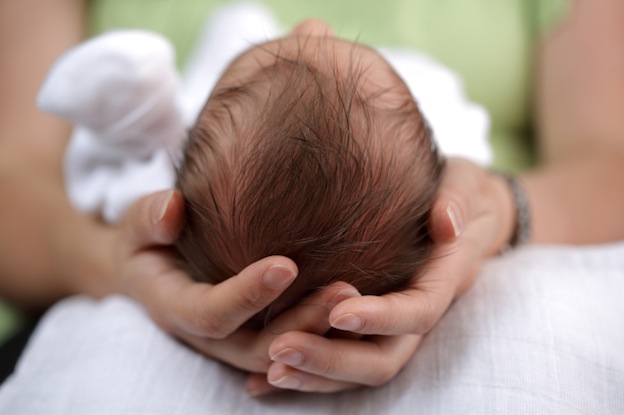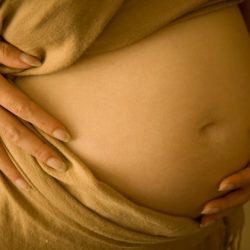SingaporeMotherhood | Parenting
February 2014
Post-Pregnancy: Your Body & Health
After giving birth, your body looks and feels like it belongs to a stranger. You’re oozing fluids from too many places, your abdomen looks as if baby hasn’t exited the building, and depending on hard you strained while pushing, a blown-up donut ring may be your favorite seat.
Fret not. Just as it took 40 weeks to get your body to its blooming glory, it will take some time to get it back to the pre-pregnant stage. Your body has gone through a whole lot of changes during pregnancy and you may want to look out for these changes so that you can deal with them.
[banner][/banner]
A Different Body After Birth
Dr Watt Wing Fong, Specialist in Obstetrics and Gynaecology & Consultant, Raffles Women’s Centre, explains:
Your Back
“Following the delivery of the baby, the loss of the ‘load’ in front of the body causes the spine to adjust itself (the centre of gravity) and this may result in backaches. It’s important to maintain good posture when carrying or nursing the baby, to reduce backaches.
Your Womb
“The womb contracts following delivery and this will likely squeeze the blood back into circulation. Some women may continue to experience swelling in the legs and this may take about a week following delivery to resolve. Continue to elevate your legs and wear tight stockings during this period.
Your Blood
“Blood is thicker during pregnancy and continues to be so during the postpartum period. There is still a risk of blood clot formation (deep vein thrombosis) so it’s important to continue drinking lots of water and keep well hydrated.
Your Muscles
“Following vaginal births, the pelvic floor muscles will be stretched and weakened and women sometimes experience urinary incontinence. Doing pelvic floor exercises will help.
Your Breasts
“The breasts would have become bigger in preparation for lactation and there will be colostrum during the first few days post-delivery. If breast milk supply is abundant, the breast can become engorged and inflamed. Empty the breast by breastfeeding and express the ‘extra’ milk periodically (usually every three hours). Otherwise, the breasts become engorged, red, hot, and painful.”
Warning Signs
Although a lot of the changes that your body goes through are considered normal, there are some warning signs that you should look out for, both physical and mental.
Pain & Bleeding
“For the physical aspect, the common problems encountered would include wound problems, infection, breast problems and bleeding,” says Dr Watt. “The pain from stitches should reduce as the days pass. If you find your pain increasing and have problems sitting properly, there could be wound breakdown. If there is any fever, there may be an underlying infection. See your doctor.
Infection
“Infection is commonly due to wound infection, breast engorgement or urinary tract infection. Sometimes, infection in the womb may result in very heavy vaginal bleeding. If there is very heavy bleeding, with huge clots being passed, you need to see your doctor quickly.
Postnatal Depression
“As for the mental aspect, if you find yourself crying easily for no reason, having a loss of appetite, loss of sleep, loss of interest in the baby and suicidal thoughts, you may be having postnatal depression. Seek help quickly. Sometimes, family members may help to pick up signs from changes in your behaviour.”
Losing Weight
There are some precautions that you should be aware of too, especially when it involves postnatal weight loss. Most women want to lose their baby weight as soon as possible and some weight is shed shortly after delivery by breastfeeding. Avoid overeating during your confinement period. It’s advisable to only start exercising after the postpartum period (six weeks) and start off slow before gradually increasing the intensity of the exercises.
“Do not exert too much abdominal pressure too early when the pelvic floor muscles are still weak as this may increase the risk of womb prolapse,” says Dr Watt. “If you want to lose weight, you probably need to do more of the ‘cardio’ type of exercises. You can also consider doing some lower intensity exercises to tone your muscles.”
Life Changing
It’s not just your physical state that you have to look after, your mental and emotional health is very important too, as you have just gone through a life-changing event.
“A lot of women get very stressed caring for the baby, especially if it’s their first baby,” explains Dr Watt. “It may be helpful to get some help during the early stages, such as confinement nannies, parents or in-laws. Having a supportive husband who shares with the care of the baby is important.
“A major source of stress for mothers is trying to do total breastfeeding. While it is good to try to do exclusive breastfeeding, do not be too stressed about it as there will be some women who simply cannot manage to do it. Accept this and do not feel guilty or pressurised by breastfeeding advocate groups.
“Feeling stressed may sometimes lead to depression. It’s helpful to share experiences with other new mothers so that you know you are not alone. It’s very important to talk. One needs to feel positive and treat motherhood as a learning experience.”
One question on the minds of many new mums is when they can resume sex after giving birth? While there is no definite time frame, most women wait for the post-natal check at six weeks.
“If the recovery is good, it can be resumed about one month after delivery, when the lochia has stopped,” says Dr Watt. “If you are breastfeeding, sometimes there may be more vaginal dryness (due to reduced level of oestrogen) and it may be necessary to use lubricants. It’s also important not to forget about contraception when you resume sex because you can still get pregnant again. The method of contraception would depend on your wishes and your doctor can discuss this with you.”
All content from this article, including images, cannot be reproduced without credits or written permission from SingaporeMotherhood.
Follow us on Facebook, Instagram, and Telegram for the latest article and promotion updates.






